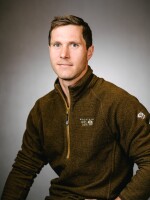Medicaid, the low-income health insurance program, is once again at the forefront of the health care policy debate in Utah. Last week, Utah lawmakers received notice from officials with the Centers for Medicare and Medicaid Services that the state’s proposed partial expansion plan was unlikely to be approved by the Trump Administration.
This comes after the 2019 Utah Legislature scaled back the voter-approved Medicaid expansion ballot initiative known as Proposition 3. The citizen-led initiative was an “unsustainable Medicaid expansion model,” according to a statement from the Governor’s office released on Wednesday. “Under Proposition 3, state-share expenditures were forecasted to outpace available revenue by $85 million in Fiscal Year 2025 alone.”
With the state plan now in question, here are six things to know about what’s next for Medicaid expansion in Utah.
What happened? On Saturday, July 27, officials with the Centers for Medicare and Medicaid Services (CMS) sent a policy statement to states considering plans like Utah’s. It said they would not approve plans that cover fewer people while getting the maximum financial contribution from the federal government.
“A number of states have asked CMS for permission to cover only a portion of the adult expansion group and still access the enhanced federal funding available through Obamacare. Unfortunately, this would invite continued reliance on a broken and unsustainable Obamacare system,” wrote a CMS spokesperson.
What was in the state’s plan? Utah lawmakers wanted to cover individuals who made up to 100% of the federal poverty level, or $25,100 for a family of four. Full Medicaid expansion under the Affordable Care Act typically requires states to expand coverage up to 138% or $34,638 for a family of four. About 90,000 people are currently eligible for Medicaid in Utah as a result of the Legislature’s plan. Full Medicaid expansion as proposed by Proposition 3 would cover an estimated 150,000 Utahns.
What does this mean for Proposition 3? Utah is still not considering Proposition 3. With the new signals coming from the Trump Administration, health department officials will start developing a “fallback plan” if the Legislature’s current plan is fully denied.
“If this request is not approved, which it appears unlikely to be approved given the statement on Saturday, the next step for us as a state would be to work on the fallback proposal,” said Nate Checketts, deputy director for the Utah Department of Health.
The fallback plan more closely resembles full Medicaid expansion as laid out in the Affordable Care Act, but is not identical.
What’s in this “fallback plan?” With the news that the Legislature’s plan is unlikely to be approved as written, health department staff are now beginning to focus on the Medicaid fallback plan. It would increase the number of Utahns who are eligible for Medicaid expansion, as designated under the Affordable Care Act. But it would still include some additional requirements set by Utah lawmakers including work requirements and a cap on enrollment if the state finds a financial reason for it.
What does this mean for other states? Other states have been watching Utah to see if the Legislature’s partial Medicaid expansion plan is approved. Similar legislative plans are being considered in Georgia and Idaho.
What’s next? The Utah Department of Health must still get approval from the Centers for Medicare and Medicaid Services for the fallback plan since it includes changes to traditional Medicaid. If that proposal is also denied, the state’s program will revert to full Medicaid expansion like voters passed with Proposition 3.



